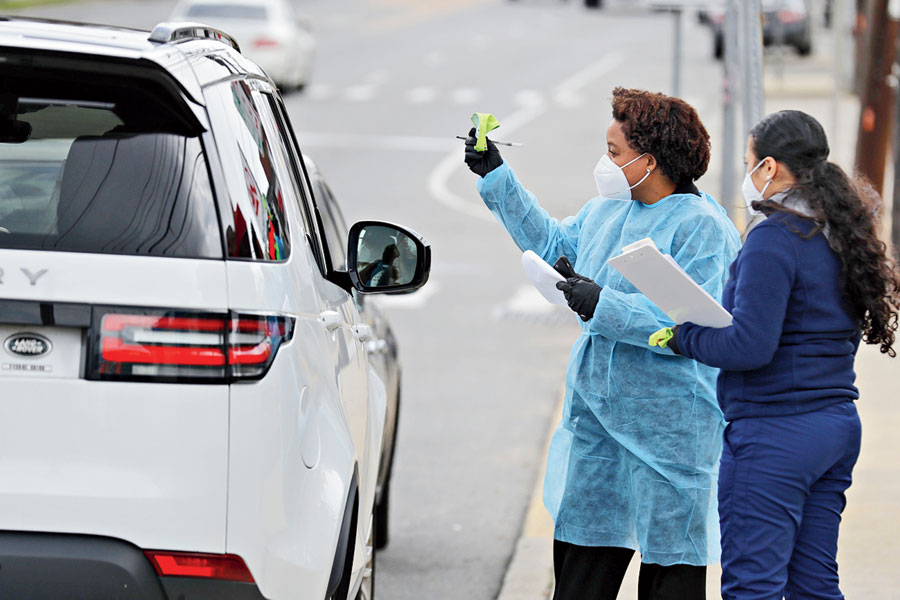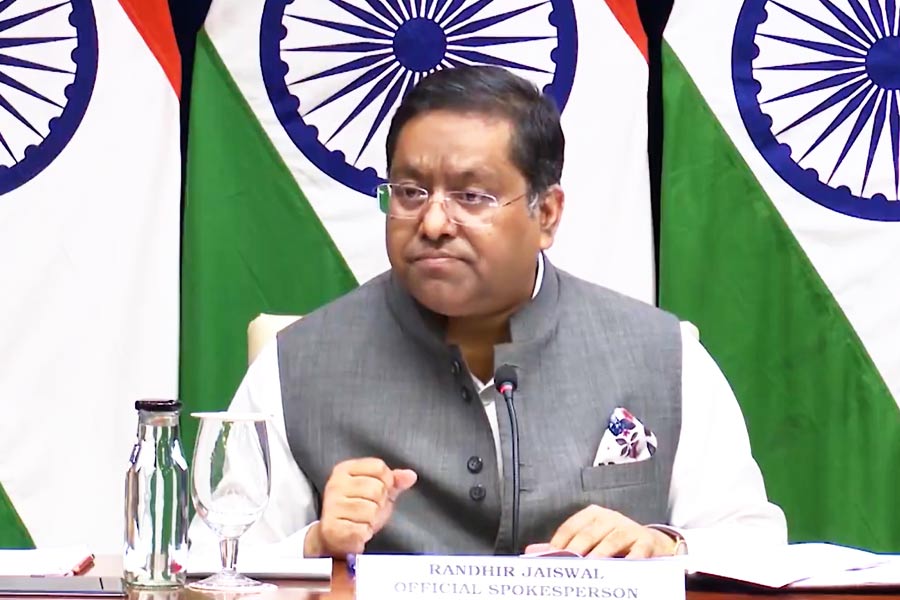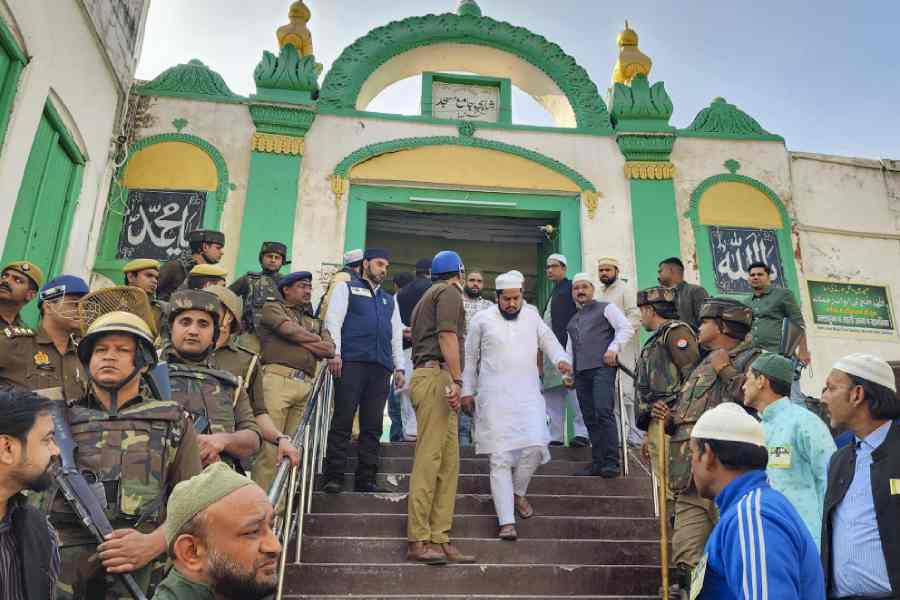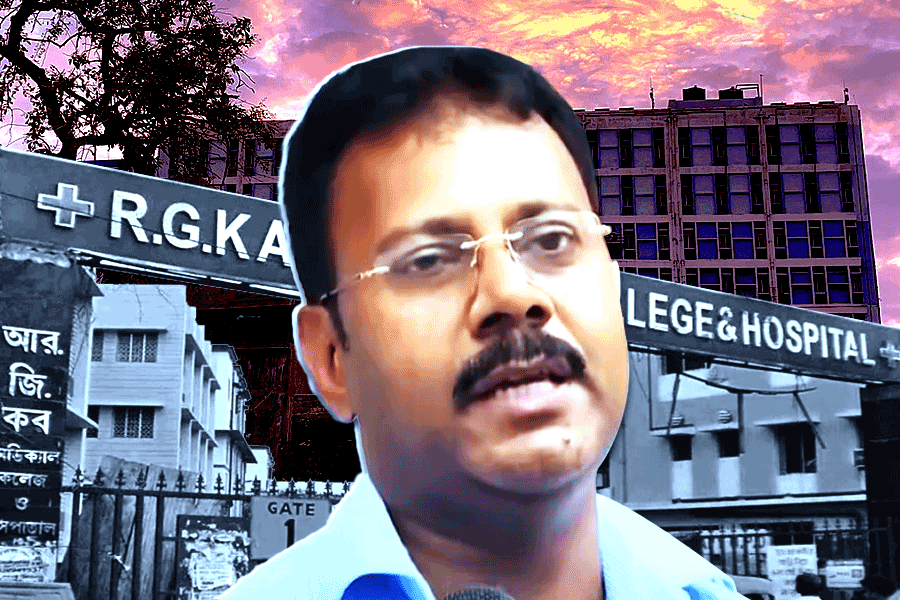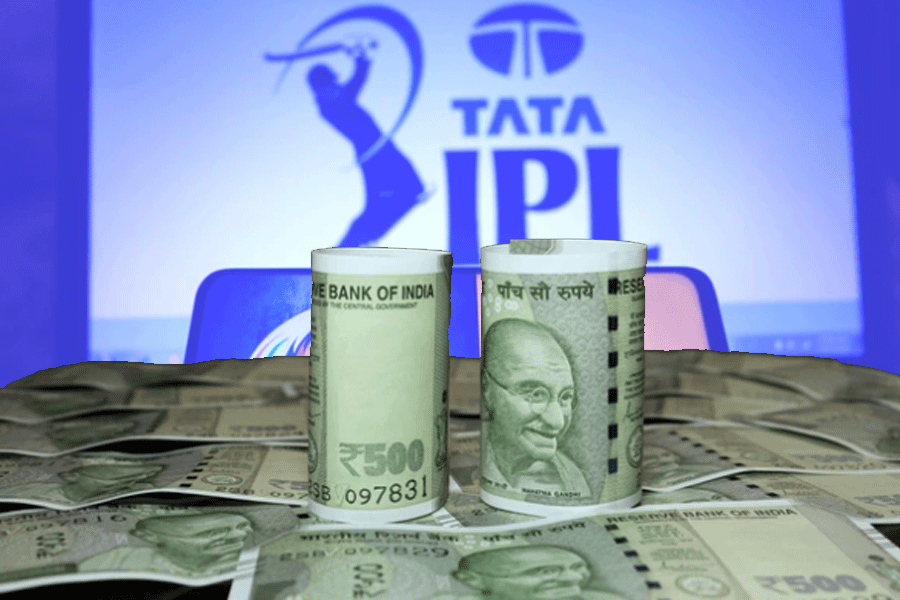Flawed tests, scarce supplies and limited access to screening have hurt the US’s ability to monitor Covid-19, governors and health officials warn.
As President Trump pushes to re-open the economy, most of the country is not conducting nearly enough testing to track the path and penetration of the coronavirus in a way that would allow Americans to safely return to work, public health officials and political leaders say.
Although capacity has improved in recent weeks, supply shortages remain crippling, and many regions are still restricting tests to people who meet specific criteria. Antibody tests, which reveal whether someone has ever been infected with the coronavirus, are just starting to be rolled out, and most have not been vetted by the Food and Drug Administration.
Concerns intensified on Wednesday as Senate Democrats released a $30 billion plan for building up what they called “fast, free testing in every community”, saying they would push to include it in the next pandemic relief package.
Business leaders, who participated in the first conference call of Trump’s advisory council on restarting the economy, warned that it would not rebound until people felt safe to re-emerge, which would require more screening.
And governor Andrew M. Cuomo of New York reiterated his call for federal assistance to ramp up testing, both for the virus and for antibodies.
“The more testing, the more open the economy. But there’s not enough national capacity to do this,” Cuomo, a Democrat, said at his daily briefing in Albany.
“We can’t do it yet. That is the unvarnished truth.”
As the governor spoke, a PowerPoint slide behind him said, “WE NEED FEDERAL SUPPORT.”
At his own briefing later in the day, Trump boasted of having “the most expansive testing system anywhere in the world” and said that some states could even re-open before May 1, the date his task force had tentatively set. Twenty-nine states, he added, “are in good shape”.
From the beginning of the coronavirus crisis, lapses by the federal government have compromised efforts to detect the pathogen in patients and communities.
A diagnostic test developed by the Centers for Disease Control and Prevention proved to be flawed. The FDA failed to speed approval for commercial labs to make tests widely available.
All of that means that the US has been far behind in combating the virus.
Whether in New York City, with its densely packed 8.4 million residents, or Nebraska, with fewer than two million spread across mostly rural expanses, widespread diagnostic and antibody testing will be crucial for determining a number of factors: How many in a community are infected but asymptomatic? Who has the protective antibodies that might allow them to go about their lives without fear? Are workplaces and schools safe?
“It is great that we are flattening the curve,” said Dr Mark McClellan, director of the Margolis Center for Health Policy at Duke University, who worked in the George W. Bush administration and is advising state and federal policymakers on the virus response.
“But for this next phase, where we are really aiming to detect and stamp out smaller outbreaks before they get so big, testing is critical for that,” he said. “So we have to plan ahead now for much larger capacity.”
By the end of May, he added, “we will maybe be up to two million tests a week, but we are definitely not at that level now”.

